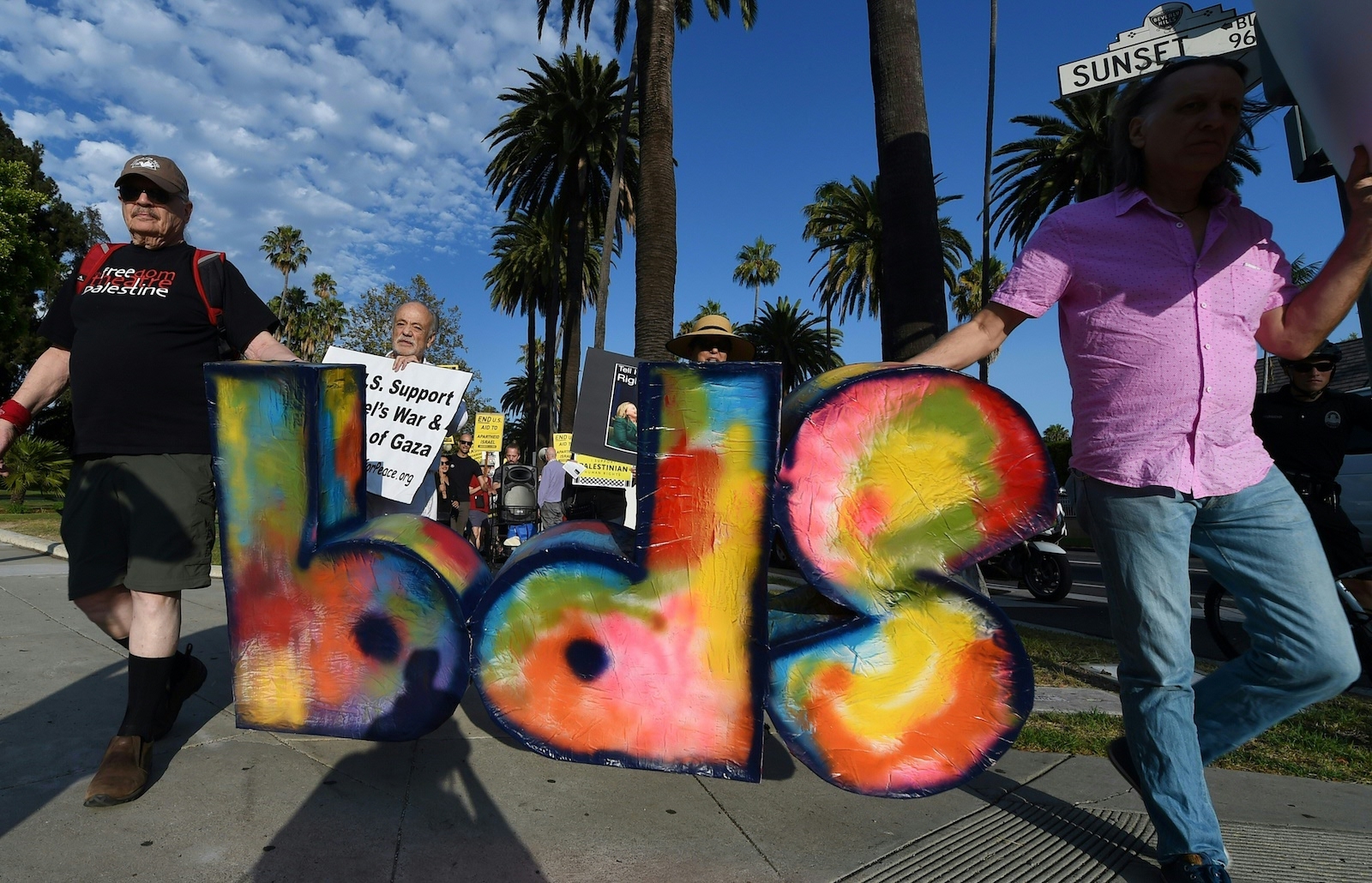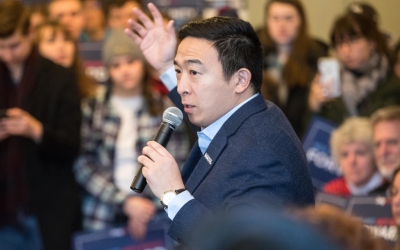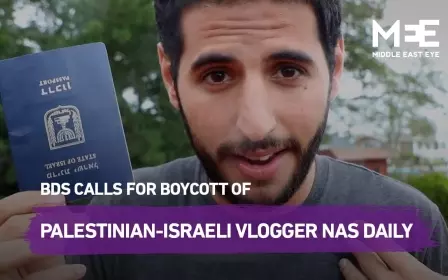US: Georgia court rules anti-BDS legislation unconstitutional

A federal court in the US state of Georgia ruled that a law created to discourage the Palestinian-led Boycott, Divestment and Sanctions (BDS) movement was in violation of the First Amendment, making Georgia the fifth state to have such legislation struck down after Kansas, Arizona, Texas and Arkansas.
In a ruling that was issued on Friday, District Court Judge Mark Cohen rejected efforts by Georgia officials to dismiss a lawsuit from Abby Martin, a journalist that has uncovered human rights abuses at the hands of the Israeli government.
The lawsuit was filed by Martin to challenge the state law after her appearance at a public university in Georgia was cancelled because she refused to sign a contract that included a mandatory oath that she would not boycott Israel.
"Even assuming that Georgia's interest in furthering foreign policy goals regarding relations with Israel is a substantial state interest, Defendants fail to explain how Martin's advocacy of a boycott of Israel has any bearing on Georgia's ability to advance foreign policy goals with Israel," Cohen said in his decision.
The anti-boycott legislation in Georgia was signed into law in 2016 and mandates that within any contract valued at $1,000 or more with the state, a pledge be made to not boycott Israel.
The BDS campaign is a non-violent initiative that encourages individuals, nations and organisations to censure Israel's consistent violations of international law and human rights standards through various boycotts.
During the past several years, the movement, increasingly popular among university students, has been attacked as antisemitic, with those making the accusations alleging that BDS unfairly singles out Israel's violations while ignoring abuses made by other countries.
More than two dozen states have adopted anti-boycott measures, most of which ban state entities from doing business with companies or individuals engaged in the BDS movement.
Martin said she was thrilled at the judge's decision and said her First Amendment rights had been "restricted on behalf of a foreign government, which flies in the face of the principles of freedom and democracy".
"The government of Israel has pushed state legislatures to enact these laws only because they know that sympathy and support for the population they brutalize, occupy, ethnically cleanse and subject to apartheid, is finally growing in popular consciousness," she said in a statement.
'A crucial moment'
The federal judge's decision comes after Israel had bombarded the besieged Gaza Strip for 11 days, violently stormed al-Aqsa Mosque, and forcibly dispersed protesters demonstrating against the forced evictions of Palestinian families in the East Jerusalem neighbourhood of Sheikh Jarrah.
One of Martin's attorneys, Mara Verheyden-Hilliard of the Partnership for Civil Justice Fund, said that Friday's ruling "comes at a crucial moment, when millions of Americans are questioning the use of US-provided weapons in the onslaught against the Palestinian people".
Verheyden-Hilliard added that the US Constitution clearly "protects participation in the BDS movement, just as it protected the seminal civil rights and labor organizing boycotts that moved our society forward".
"Israel's latest violent onslaught against Palestinians underscores the importance of advocacy for Palestinian human rights," Gadeir Abbas, an attorney at the Council on American-Islamic Relations and also one of Martin's counsels, said in a statement.
"By standing up against this illegal anti-BDS law, Abby Martin ensures that all Americans have the freedom to stand up for Palestine."
Courts have now ruled against laws in five US states that require individuals to pledge not to engage in a boycott of Israel in order to sign a contract of employment with the state.
In February 2018, Kansas became the first state to do so, followed by Arizona later that year.
In 2019, a judge in Texas struck down an anti-boycott law following a lawsuit from Bahia Amawi, a speech pathologist who was not allowed to sign a contract extension with a public school district unless she pledged to not boycott Israel.
Middle East Eye delivers independent and unrivalled coverage and analysis of the Middle East, North Africa and beyond. To learn more about republishing this content and the associated fees, please fill out this form. More about MEE can be found here.






